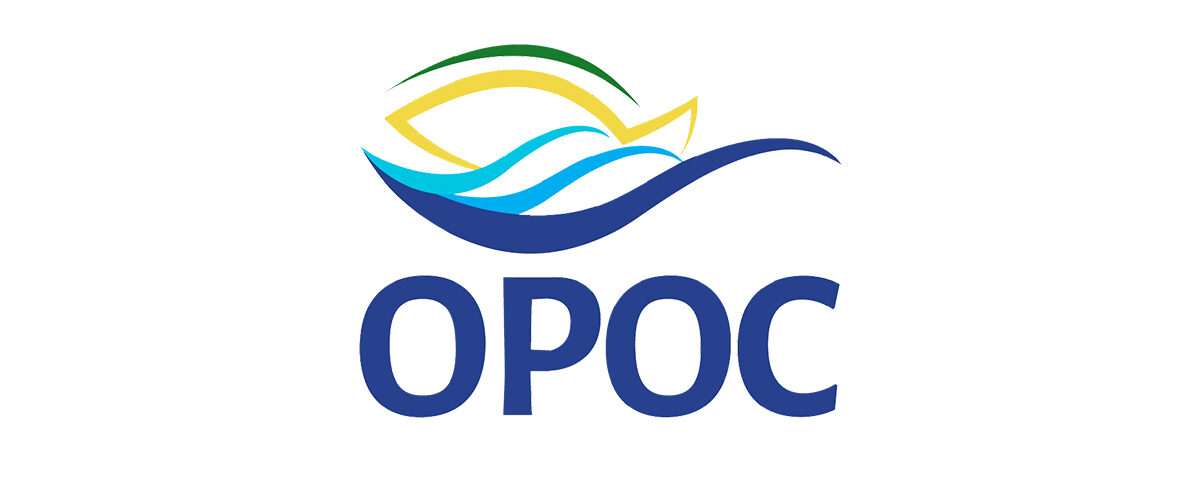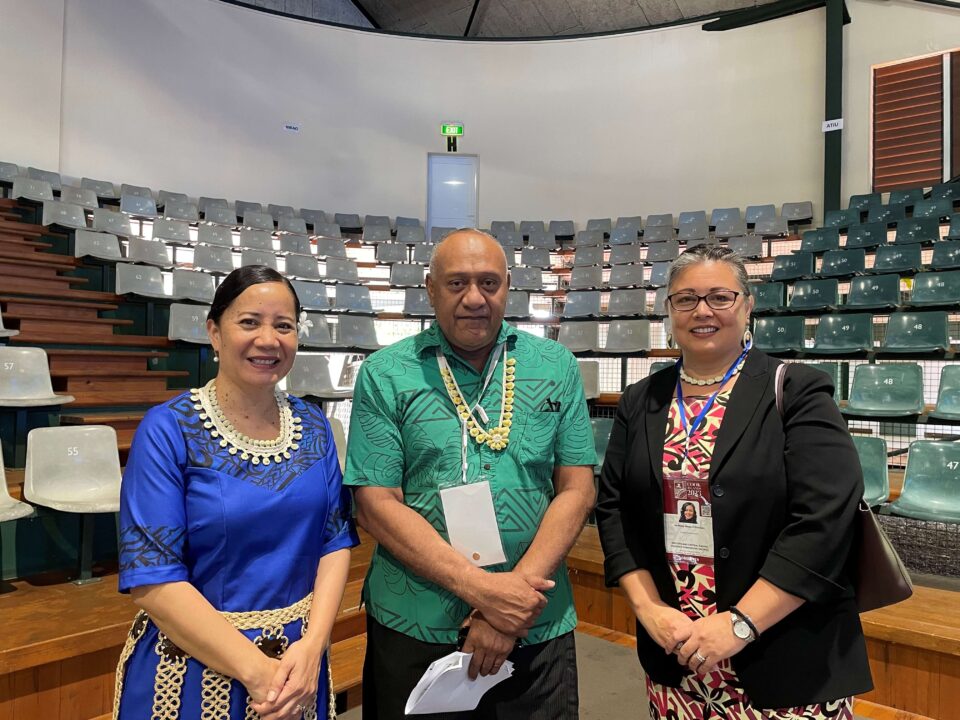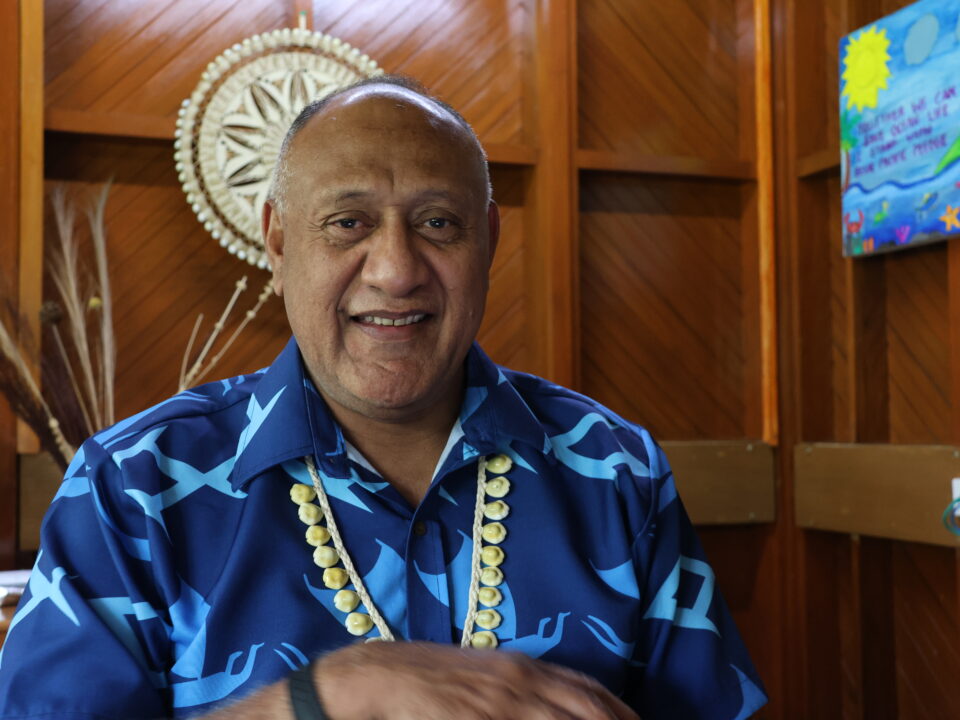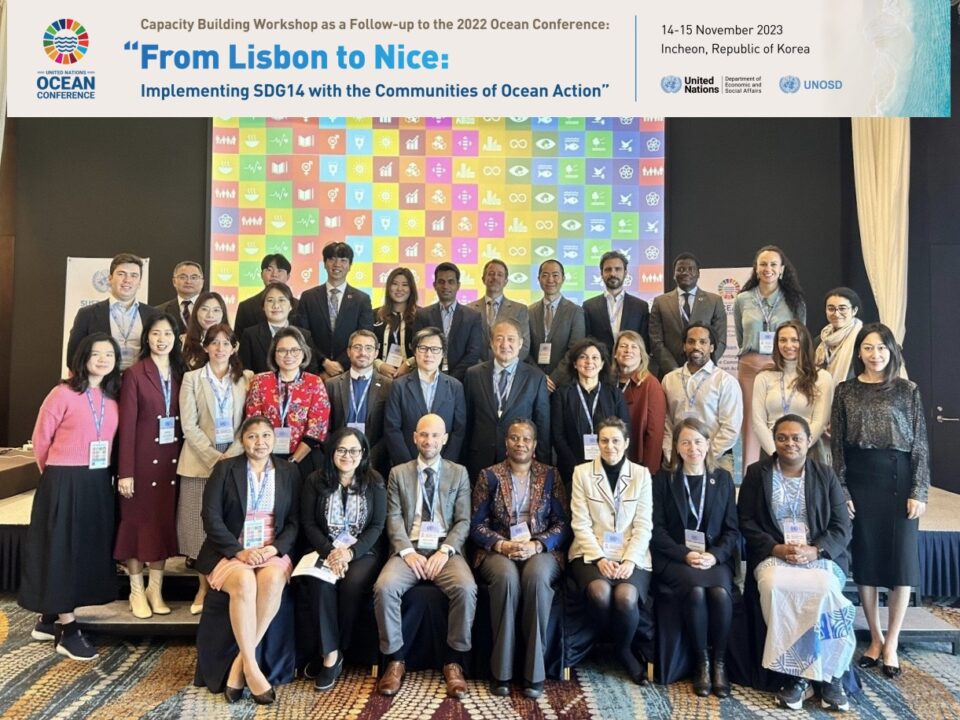
Remarks by H.E Henry Puna,
Secretary General of the Pacific Islands Forum & Pacific Ocean Commissioner
Held in Singapore from 29 – 30 December 2022
Excellencies, Ladies and Gentlemen, Friends,
- Bula vinaka, Kia Orana and warm Pacific greetings. Thank you for affording me the opportunity to join this World Ocean Summit, albeit virtually.
- As Secretary General to the Pacific Islands Forum and Pacific Ocean Commissioner, I am delighted to be here, alongside other Pacific representatives, to speak about our Pacific ocean priorities.
Year of the Ocean
- Excellencies, let me congratulate you all for a momentous ‘year of the ocean’ – beginning with the long sail from Brest in France, to what appears to be the final leg this year at the Biodiversity COP in Montreal, Canada.
- And just two weeks ago, for those of us attending COP27 in Sharm El Sheik, Egypt, it was gratifying to see a positive outcome for the ocean emerge from the discussions, where a firmer process is now established for an Ocean-Climate Dialogue within the UNFCCC.
- This is a notable win for us all, though in many ways it is only the beginning of our efforts to embed the ocean in climate discussions.
An Integrated Ocean Discourse
- Excellencies, for too long, we have taken the ocean for granted for the critical services it provides humanity. The ocean covers 70% of the planet’s surface, absorbs 30% of global CO2 emissions, absorbs over 90% of the heat from global warming and produces over 70% of the earth’s oxygen.
- These figures show the immense burden that our ocean carries to regulate our carbon-heavy climate and environment.
- And at what cost? Well, thanks to the research that many of you here today are carrying out, we know that it is at the cost of many of the precious biological and ecological systems in our ocean.
- Many have termed this effect the triple planetary crisis – consisting of an ocean, climate and biodiversity crisis. And because of these links, we must ensure the ocean is reflected in global discussions and decisions on climate and on biodiversity.
- Excellencies, given that the Blue Pacific is host to the largest area of ocean in the world, when the health of our ocean is compromised, so too are the resources and the livelihoods of our people.
- As an oceanic people, we depend on our ocean as the source of nourishment, of livelihoods, of identity, and of economic prosperity. We need a healthy ocean in order to have healthy populations.
- And indeed our Leaders through the decades have recognized the central role of the ocean in our wellbeing as Pacific people. Today this is expressed through the lens of the blue economy, as well as conservation and management measures that ensure that our Pacific tuna stocks are amongst the best managed in the world.
2050 Strategy
- Excellencies, earlier this year Forum Leaders endorsed the 2050 Strategy for the Blue Pacific Continent, setting out our collective approach to achieving sustained security, development, and prosperity for all peoples in the Pacific. The course is ambitious, but our Leaders are adamant that they must leave a strong and sustainable legacy for the future generations.
- The 2050 Strategy recognizes climate change as the single greatest threat to our livelihoods, sovereignty, and existence.
- By the same token, our Leaders recognize the ocean as representing our greatest hope in fulfilling and reaching our common goals and aspirations, but we need to work hard to ensure its protection and conservation, so that it can continue to provide resources and environmental services, not only for ourselves but for all the world.
Pacific Ocean Initiatives
- Excellencies, our forward-looking ocean conservation efforts must: (i) save what is left; (ii) recover what is lost and (iii) ensure all future activities in the ocean are sustainable. In this respect, marine protected areas (MPAs) are one of the most effective tools to protect the ocean from human-driven pressures and impacts.
- In the Pacific, our countries are taking the lead role with these areas, with approximately 30% of the total 42 million square kilometres enjoying some sort of protection within the Blue Pacific Continent. Such initiatives demonstrate that our region is carrying the burden of maintaining oceans health on the world’s behalf. Which brings me to a question that I would pose to you all today: what benefit do we derive in return for these efforts?
- In our reckoning, developed countries from the north and larger countries, including those from within our Asia-Pacific Region must do their part to support and resource ocean conservation, particularly in light of the ocean’s function in regulating the sorts of climate impacts that many developed countries are historically responsible for.
- And despite carrying this conservation burden, I am also proud to say that we are not standing idly by – we are indeed doing what we can to raise the necessary finance to protect our ocean – including through novel initiatives and models such as the Government of Niue’s Ocean Conservation Credit system, and Fiji’s Blue Bond Initiative, which is to be ready in early 2023.
- Excellencies, in closing let me simply say that the Ocean is the unifier and solution to many of our critical global problems, but it also the least funded global SDG. Resourcing and financing at scale is critical to support current and emerging ocean-based actions moving forward.
- I trust that we can continue raise awareness of this key gap, for the good of our generation and of generations to come.
- I thank you.



